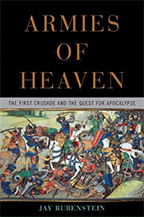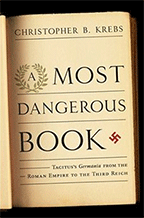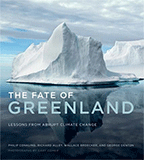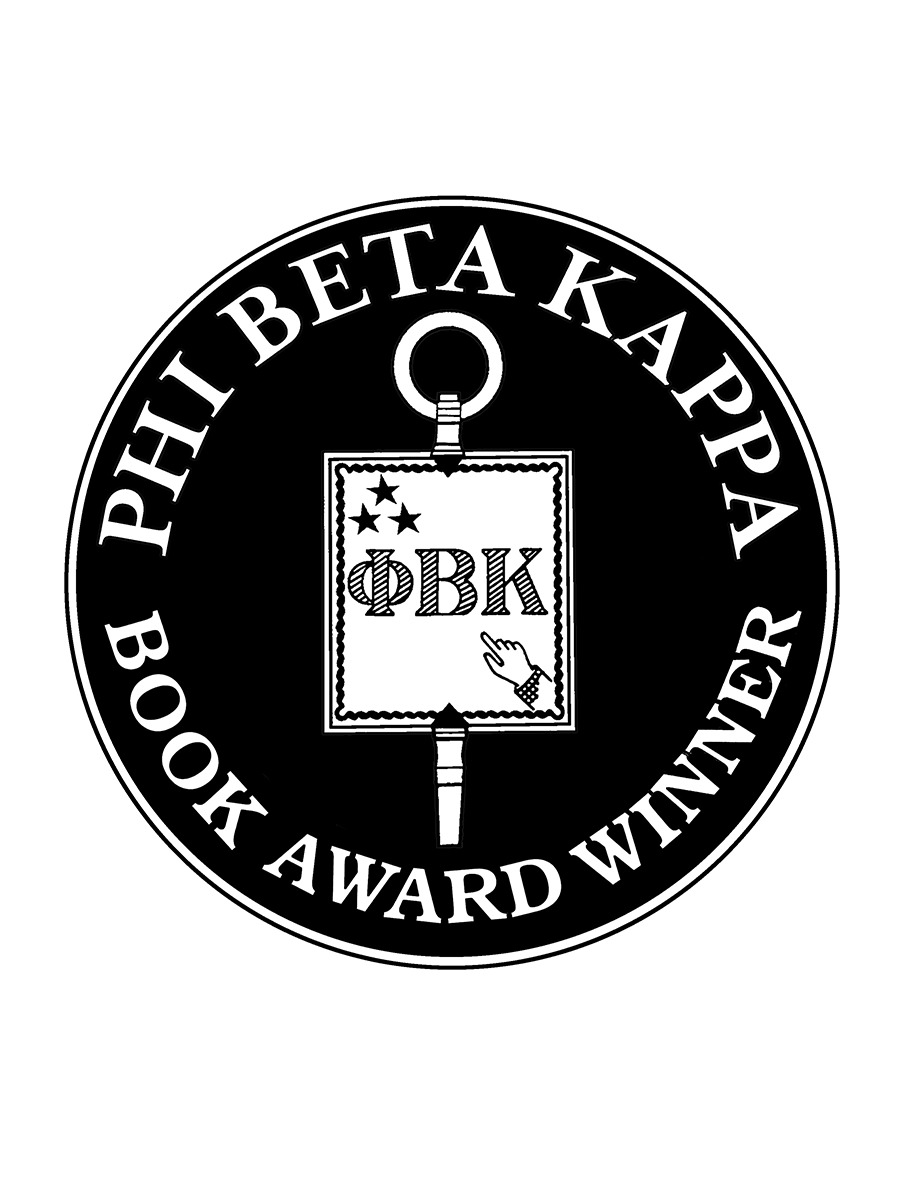The Phi Beta Kappa Book Awards are given each year for outstanding scholarly works published in the United States. These awards support the general mission of the Society to advocate for excellence in the liberal arts and sciences and to promote dialogue about important issues and ideas of our time in an environment of intellectual fellowship.
This year’s award recipients are Jay Rubenstein, Christopher B. Krebs, Philip Conkling, Richard Alley, Wallace Broecker, and George Denton. The Society presented the awards on Saturday, April 6 at a ceremony in Washington, D.C.
Georgetown University Provost James O’Donnell was the keynote speaker at this year’s event.
RALPH WALDO EMERSON AWARD — $10,000 Prize
 Jay Rubenstein is the recipient of the Ralph Waldo Emerson Award for Armies of Heaven: The First Crusade and the Quest for Apocalypse (Basic Books, 2011). This award was established in 1960 for significant contributions to interpretations of the intellectual and cultural condition of humanity.
Jay Rubenstein is the recipient of the Ralph Waldo Emerson Award for Armies of Heaven: The First Crusade and the Quest for Apocalypse (Basic Books, 2011). This award was established in 1960 for significant contributions to interpretations of the intellectual and cultural condition of humanity.
Beginning in 1095 and culminating four bloody years later, the First Crusade represented a kind of holy warfare that was both unrestrained and apocalyptic. In Armies of Heaven, medieval historian Jay Rubenstein tells the story of this cataclysmic event through the eyes of those who witnessed it, emphasizing the fundamental role that apocalyptic thought played in motivating the Crusaders.
Jay Rubenstein an associate professor of history at the University of Tennessee. He grew up in Cushing, Oklahoma and attended Carleton College in Northfield, Minnesota where he graduated with a B.A. in 1989. From 1989 to 1991 he studied at the University of Oxford as a Rhodes Scholar. In 1997 he received a Ph.D. in history from the University of California, Berkeley.
CHRISTIAN GAUSS AWARD — $10,000 Prize

Christopher B. Krebs is the recipient of the Christian Gauss Award for A Most Dangerous Book: Tacitus’s Germania from the Roman Empire to the Third Reich (W.W. Norton & Company, 2012). This award, given for books in the field of literary scholarship and criticism, was created in 1950 to honor a former Phi Beta Kappa president and distinguished scholar at Princeton University.
When Tacitus wrote a not-very-flattering little book about the ancient Germans in 98 CE, at the height of the Roman Empire, he could not have foreseen that the Nazis would extol it as “a bible,” nor that Heinrich Himmler, the engineer of the Holocaust, would vow to resurrect Germany on its grounds. The Most Dangerous Book traces the wide-ranging influence of the Germania over a five-hundred-year span, showing us how an ancient text rose to take its place among the most dangerous books in the world.
Christopher B. Krebs studied classics and philosophy in Berlin, Kiel, and Oxford. He was a lecturer at University College and an assistant, and then associate professor in the Classics department at Harvard before he joined the Classics department at Stanford. In the spring of 2007, he was the professeur invité at the École Normale Supérieure in Paris. The following year, 2008-2009, he was an APA fellow at the Thesaurus Linguae Latinae in Munich.
SCIENCE BOOK AWARD — $10,000 Prize
 Four authors – Philip Conkling, Richard Alley, Wallace Broecker, George Denton – are the recipients of the Phi Beta Kappa Book Award in Science for The Fate of Greenland: Lessons from Abrupt Climate Change (The MIT Press, 2011). This award is offered for outstanding contributions by scientists to the literature of science. Its purpose is to encourage literate and scholarly interpretations of the physical and biological sciences and mathematics.
Four authors – Philip Conkling, Richard Alley, Wallace Broecker, George Denton – are the recipients of the Phi Beta Kappa Book Award in Science for The Fate of Greenland: Lessons from Abrupt Climate Change (The MIT Press, 2011). This award is offered for outstanding contributions by scientists to the literature of science. Its purpose is to encourage literate and scholarly interpretations of the physical and biological sciences and mathematics.
Geological evidence suggests that Greenland has already been affected by two dramatic changes in climate: the Medieval Warm Period, when warm temperatures in Northern Europe enabled Norse exploration and settlements in Greenland; and the Little Ice Age that followed and apparently wiped out the settlements. Greenland’s climate past and present could presage our climate future. The planet appears to be in a period of acute climate instability, exacerbated by carbon dioxide we pour into the atmosphere, and the melting of Greenland’s ice shelf would cause sea levels to rise twenty-four feet worldwide. As this book makes clear, it is in all of our interests to pay attention to Greenland.
Philip Conkling is Founder and President of the Island Institute in Maine. Richard Alley, a glaciologist, is Evan Pugh Professor of Geosciences and Associate of the Earth and Environmental Systems Institute at Penn State. Wallace Broecker, an oceanographer, is Newberry Professor of Geology at Columbia University and a winner of the Crafoord Prize in Geosciences. George Denton, a geologist, is Professor of Geological Sciences and Quaternary Studies at the University of the Maine.
Previous ΦBK book award winners have included Marjorie Garber, Harold Bloom, Robert Nozick, John Rawls, Robert Coles, Richard Hofstadter, Jared Diamond, Edward O. Wilson, Ernst Mayr, Stephen Jay Gould, and Linus Pauling, among others.




